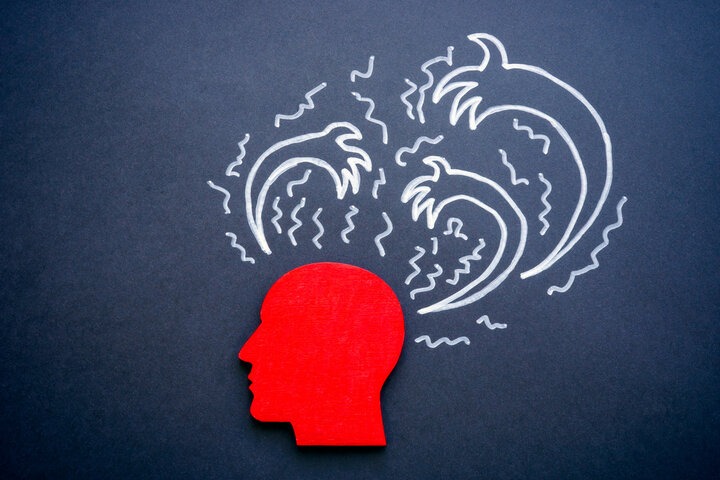The Psychology of Overthinking: Understanding the Mind’s Endless Loop
HEALTH AND WELLNESS
Tarun Mehta
2/28/20253 min read


The Psychology of Overthinking: Understanding the Mind’s Endless Loop
Have you ever found yourself stuck in a loop of thoughts, replaying past mistakes, or worrying about the future? This is called overthinking - a common mental habit that can cause stress, anxiety, and even decision paralysis. But why do we overthink? What happens in our brain when we do it? How does it impact us mentally and emotionally? And most importantly, how can we break free from this cycle?
What is Overthinking?
Overthinking is the habit of dwelling on thoughts, analyzing situations excessively, or worrying about things that may never happen. It often involves two types:
Ruminating – Replaying past events and regretting decisions.
Worrying – Constantly thinking about future uncertainties.
While thinking is a normal and important function of the brain, overthinking takes it to an extreme, leading to stress and inaction.
The Science Behind Overthinking
Our brain is designed to help us solve problems and make decisions. But when we overthink, it works too hard, causing us to analyze everything in extreme detail instead of taking action.
How Overthinking Affects the Brain - When we think too much, our brain keeps going over the same thoughts, trying to find the "perfect" solution. Instead of making things clearer, this often leads to confusion, stress, and indecision.
Why Overthinking Feels Stressful - Our brain also controls our emotions, including fear and worry. When we overthink, it reacts as if something bad might happen, even if there is no real danger. This makes us feel anxious, restless, and unable to relax.
Why Overthinkers Struggle to Switch Off - In people who overthink, the brain connects thoughts and emotions too strongly. This means a small thought can quickly turn into a big worry, making it hard to let go and move forward.
In short, overthinking happens when our brain tries too hard to protect us from mistakes. Instead of helping, it often creates stress and keeps us stuck in a loop of endless thoughts.
What Triggers Overthinking?
Several factors can trigger overthinking, including:
Uncertainty – Not knowing the outcome of a situation makes people replay different possibilities in their minds.
Perfectionism – The fear of making mistakes or not meeting high standards leads to excessive analysis.
Past Trauma – People who have experienced failures or negative events may over-analyze their actions to avoid repeating mistakes.
Social Pressure – Fear of judgment from others makes people overthink their words, actions, or decisions.
Information Overload – In today’s digital age, access to too much information can lead to excessive analysis and confusion.
The Hidden Benefits of Overthinking
Although overthinking is often seen as negative, it has some benefits when controlled properly:
Better Problem-Solving – Analyzing a situation from multiple angles can lead to well-thought-out decisions.
Increased Self-Awareness – Reflecting on past mistakes helps in self-improvement.
Creative Thinking – Overthinkers often explore unique ideas and possibilities.
Risk Management – Overthinking can help identify potential risks and prepare for challenges.
However, when overthinking becomes excessive, it leads to stress, indecision, and mental fatigue.
The Challenges of Overthinking
Overthinking leads to various challenges:
Decision Paralysis – Over-analyzing options can make it difficult to choose, leading to missed opportunities.
Anxiety and Stress – Constantly worrying about things outside our control increases anxiety.
Lower Productivity – Spending too much time thinking instead of taking action reduces efficiency.
Sleep Disturbances – Overthinkers often struggle to sleep due to racing thoughts.
Strained Relationships – Over-analyzing social interactions can create misunderstandings and self-doubt.
How to Stop Overthinking: Practical Solutions
If overthinking is negatively affecting your life, here are some strategies to break the cycle:
1. Practice Mindfulness
Mindfulness involves focusing on the present moment instead of dwelling on the past or future. Simple mindfulness techniques include:
Deep breathing exercises
Meditation
Observing thoughts without judgment
2. Set Time Limits for Decisions
If you struggle with indecision, set a time limit for making choices. For example, give yourself 10 minutes to decide what to wear or 24 hours to respond to an important email.
3. Challenge Negative Thoughts
Challenge your negative thoughts by asking yourself:
Is this thought factual or assumed?
Will this matter a year from now?
What is the worst that could happen, and how can I manage it?
4. Engage in Physical Activities
Exercise helps reduce stress and shifts your focus away from overthinking. Activities like walking, yoga, or even dancing can clear your mind.
5. Limit Information Intake
If too much information is causing overthinking, try to:
Reduce social media usage.
Avoid over-researching decisions.
Focus on need-to-know information.
6. Take Action
Taking action can sometimes be an effective way to prevent overthinking. Even small steps toward a goal can reduce anxiety and build confidence.
7. Seek Professional Help
If overthinking is severely affecting your mental health, remember that you are not alone. Seeking professional help like counselling or therapy can provide helpful coping strategies and make you feel supported and understood.
Final Thoughts
Understanding the causes and effects of overthinking can enlighten and empower you, helping you to be at greater peace and highly productive. Overthinking is a natural part of human psychology, but when left unchecked, it can become a barrier to happiness and success. By recognizing its impact and practising effective solutions, we can train our minds to think more clearly and positively.
The next time you find yourself overthinking, pause, breathe deeply, and redirect your focus to what you can control. Imagine your swirling thoughts as passing clouds—let your determination be the wind that clears them away. Remember, life is meant to be experienced, not endlessly analyzed.
Video available at: https://youtu.be/5OZeLmhUeAk

Ascend2Elevate
Transform today, Thrive tomorrow
© 2026. All rights reserved.
PS: The content on the website are the author's viewpoint and opinion. Kindly follow any tips or advice at your own discretion and ensure they suit your needs and personal situation. Please check our T&C page for more details (ascend2elevate.com.au/terms-and-conditions)
Office 4074, Ground Floor, 470, St Kilda Rd, Melbourne, VIC-3004, Australia
